Meet the Byzantine/Hijazkiar/Double Harmonic Major Scale
Today we'll check out the Byzantine/Hijazkiar/double harmonic major scale. Phew! The scale of many names! Actually, most scales are referred to by several names. It depends on the country, tradition or style of music. For example, there's the Ionian or major scale, Lydian dominant or fourth mode of melodic minor, etc.
The Byzantine scale, et al, has a very exotic sound, due to the flat 2nd degree, raised 3rd and raised 7th. The notes/degrees of the scale are:

Besides its exotic sound, I like the different pattern variations you can use. These patterns can open up a nice variety of sounds to explore. The basic scale in the lower octave is:
EXAMPLE 1:
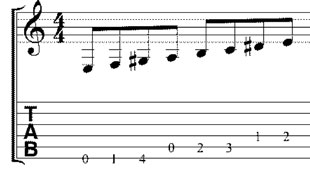
EXAMPLE 2, the next octave higher:
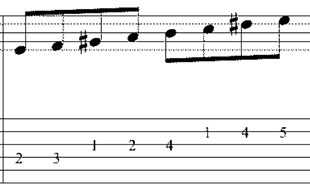
EXAMPLE 3:
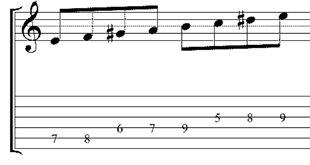
EXAMPLE 4, single-string pattern:
All the latest guitar news, interviews, lessons, reviews, deals and more, direct to your inbox!
In EXAMPLE 4, you can play the scale up on one string using adjacent half-steps. This is a great exercise for switching positions and can lead to some interesting phrasing and sounds. Experiment with sliding between positions when playing the scale on one string to get more of a “Middle Eastern," slinky sound.
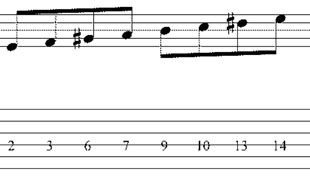
EXAMPLE 5, two-note-per-string pattern:
In EXAMPLE 5, the scale can be played diagonally across the neck for more of a pentatonic feel:
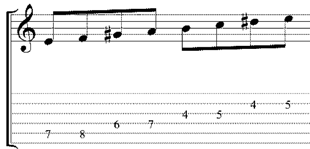
You can use this scale as a substitute for a minor scale and play it over a tonic minor chord, although it has a few major scale/chord components. In the examples above, we are in the key of E Byzantine, so you can play this over an E minor chord. Be careful, though, since the scale contains a G#, and the E minor chord has a G natural. The effect of the scale seems to be more pronounced when played over a minor chord. Above all, use your ears to determine what is appropriate and sounds good!
Experiment with the phrasing, using slides, legato and bending. This will help to bring out more of the exotic sound this scale has to offer.
Steve Booke is a composer for film and TV from the New York area. His compositions range from orchestral to metal to world styles from every corner of the earth. A graduate of Berklee College of Music, Steve has played guitar for more than 27 years. He has recorded 10 albums of his own and has played on countless others. He plays gigs in the NY area and tours the East Coast with a variety of bands. He has performed with Ben E. King and members of Mahavishnu Orchestra. He endorses D'Addario/Planet Waves, Larrivee Guitars, Levy's Leathers, Peavey, Stylus Pick, Finale PrintMusic, Pigtronix, Tech 21, Toontrack, Graph Tech, Seymour Duncan, Waves, Studio Devil and L.R. Baggs. His music is available on iTunes and Amazon. He can be contacted at info@stevebooke.com. Visit stevebooke.com.
